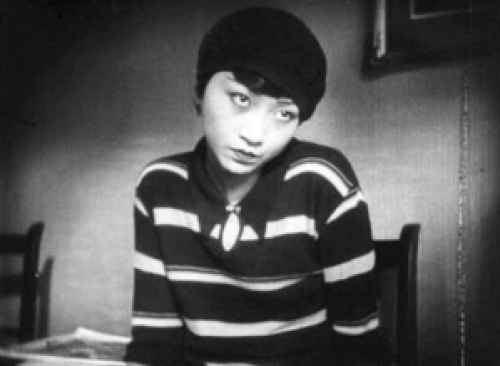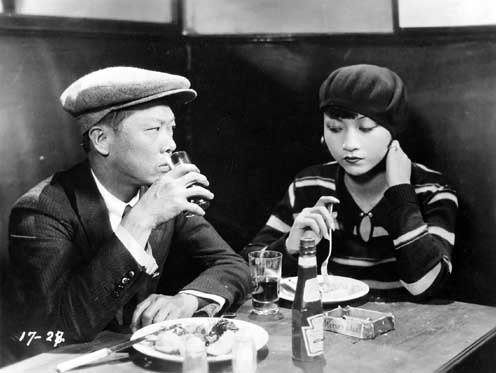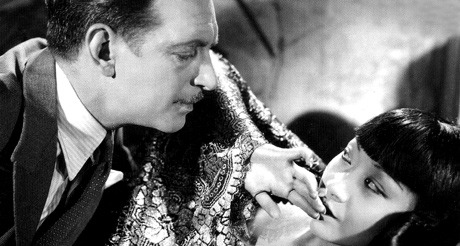The Great Acting Blog: “Actors Need To Reclaim Acting – Lessons From EA Dupont’s Piccadilly”
EA Dupont’s silent era masterpiece, Piccadilly, is set in a fashionable London nightclub, and is about an exotic dancer, played by Anna May Wong, whose routines lead to her becoming the toast of Jazz-Age London. She also becomes the erotic obssesion of the her boss Valentine Wilmot (played by Jameson Thomas), which in turn, pushes the nose of his former lover and star dancer, Mabel Greenfield (Gilda Gray), out of joint, setting off a chain of events leading to tragedy. Piccadilly features some simply breathtaking cinematography, which your eyes will hardly believe, and if anyone is any doubt about the credentials of early British cinema, then they need not look any further than Dupont’s film. Joyously, we are also treated to an early Charles Laughton performance, credited as “nightclub diner”, where he complains about a dirty plate. However, it was by the acting generally, that I was piqued – I would not be exaggerating to say that I have simply never seen so many masterful performances all in the same film.
I could single out the sheer intensity of King Hou Chang, but that would be unfair to the provocative and piquant Anna May Wong, and to the grace and technical execellence of Thomas and Gray. The acting in this film is beautiful. The performances are made up of small moments possessed with a perfectly distilled meaning, serving a very precise purpose, and executed with a consummate control. In some respects, a silent film gives us a clearer view to the actor’s work, similar to when watching a subtitled foreign film, because we don’t have potential distraction of the sound of what the actors are saying, and which is particularly distracting when the actor speaks the lines falsly. Certainly in Piccadilly, some of the power of the performances would have been lost if we had been able to hear what the actors were saying – it was just such a rich experience observing their movements and facial expressions. As with all great performances, we are treated to witnessing the truth of the actor’s personality, and that was no different in this film, where the honesty and lack of self-consciousness meant that the actors revealed themselves, made themselves vulnerable, which, in turn, rendered the film’s love triangle truly heartbreaking – a human being defending their position with everything they’ve got, is indeed a powerful sight. In the end, the performances in Piccadilly attain the highest point in acting; they show us that the human face can be poetic.
All of which left me confused. Surely the acting in silent cinema was no match for our all-dominant contemporary “naturalism”? Aren’t pre-mid 20th century actors supposed to be false, “theatrical”, mechanical? And yet, Piccadilly, and other films from that era, have proved to be such rich viewing experiences, especially when compared to today’s work, so much of which seems trivial, cynical, superficial and self-serving (I’ve found this to be even more the case in theatre). It’s generally thought that acting changed around the middle of the last century, that what had gone on before that period was no longer acceptable – a new, apparently idealistic new generation of teachers and directors, ushered in a new modern era of “realism”. It’s hard to see how acting has changed in that period, but what is certainly true is that actors have become completely dominated by directors, and subservient to teachers, even to the extent that the actor himself is marginalised within his own performance (eg – directors or teachers getting the acclaim for great work done by an actor). More broadly speaking, the stature of actors has diminished, with less of them now in control of companies, or even being perceived of as capable of running companies (would the establishment of an institution such as the National Theatre be put in an actors hands today?). Donald Wolfitt set up his own touring company because nobody would give him a chance to play Hamlet, and in early cinema, there was no director: the cinematographer took are of the pictures, and the actors took care of the acting. Could it be then, that there never was anything wrong with the way acting was done, but that it was attacked by directors and teachers in order to create the space for them to have careers, ie – directors and teachers shove actors off their own work, then take responsibility for it, and, voila!?
Masterpieces like Piccadilly, prove that there never was anything wrong with the way acting was done, infact, there is strong evidence to suggest that perfromances were (and are) generally stronger when the actor left alone to get on with his work, in the best way he sees fit, taking responsibility for all aspects of it.





James Devereaux/ 12.07.2012
Oh wow, would love to have seen the film in such a context, especially with accordian. Glad you’re a fan of Piccadilly too. Many thanks for your comment, Andrew.
Mame/ 29.12.2022
I love Anna and now am dying to see this film. Another of my favorite actresses is Setsuko Hara one of the best actresses who worked with Ozu and Kurosawa. All she has to do is smile and the tears flow. She has such inner work on each transition.This is a wonderful blog. I am getting inspired by your writing and encouragement.
jazz instrumental music/ 22.12.2023
jazz instrumental music